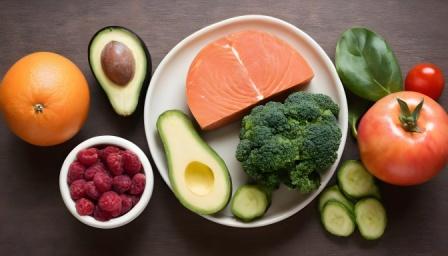Weight loss has spurred countless YouTube videos, numerous articles, and a plethora of rumors. Some claim eating specific foods or following certain diets will magically transform your body, while others try to sell questionable products. The weight loss industry has thrived on these notions. Today, in this article, let's delve into the science behind weight loss. What's fact and what's fiction? What should you eat, and what should you avoid to shed those extra pounds? Let's find out.
At its core, weight loss is a simple concept. Imagine your body as a bank account. The money you earn accumulates in your account, and the money you spend is deducted. Similarly, your body operates on a calorie bank. Calories you consume get stored, and the more you burn through activities, the more calories you use up. When your calorie intake exceeds what your body spends, the excess gets stored as fat, leading to weight gain. To lose weight, you need to either reduce your calorie intake or increase your calorie expenditure, also known as burning calories. We'll talk more about calorie burning shortly, but first, let's understand where calories come from.
Every food and drink, except water, contains calories, which are units of energy. Your body utilizes calories for various functions, including digestion, breathing, and even while you're sleeping. Surprisingly, an average person burns around 400 calories during 8 hours of sleep. This basic energy expenditure is known as Basal Metabolic Rate or BMR, which varies based on factors such as age, height, weight, and muscle mass. You can calculate your BMR using online calculators.
Now, when it comes to food, not all calories are created equal. The concept of the Thermic Effect of Food (TEF) explains that different foods require varying amounts of energy for digestion, absorption, and storage. For instance, fats and oils are easily digested, requiring minimal energy expenditure. On the other hand, whole grains, proteins, high-fiber vegetables, and fruits demand more energy to digest, making them beneficial for weight management. While some might believe in the idea of negative calorie foods, where the body burns more calories digesting certain foods than the calories they provide, this concept is a myth. The thermic effect can't exceed 100%, with proteins having the highest thermic effect, around 30%.
When it comes to weight loss, it might seem logical to merely consume fewer calories than your BMR to shed pounds. However, it's crucial to emphasize the importance of healthy weight loss. Drastically reducing calorie intake without exercise can disrupt hormonal balance, leading to fatigue, irritability, and difficulty concentrating. Notably, the brain, which consumes 20% of the body's energy, can be significantly affected, making self-control challenging. To achieve healthy weight loss, focus on a balanced approach that includes diet control, regular exercise, proper sleep, and stress management.
Also Read: Breaking Free from the Diet Coke Grip: A Personal Journey
Let's talk about diet in detail. Ever felt hungry after eating a chocolate bar? The Satiety Index explains that certain foods make you feel full while others don't. Boiled potatoes, pulses, high-fiber foods, low-fat dairy products, eggs, and nuts have a high satiety index, meaning they make you feel full despite having the same calorie content. Incorporating such foods into your diet can help control hunger and reduce overall calorie intake.
When it comes to carbohydrates, they are a significant energy source for the body. Carbs are converted into glycogen and stored in the liver and muscles. Consuming excess carbs leads to conversion into fat cells, causing weight gain. However, completely eliminating carbs is not the solution. Research has shown that neither high-carb nor low-carb diets have a significant impact on weight loss. A balanced approach, focusing on healthy carbs like whole grains, fruits, and starchy vegetables, is essential.
Additionally, fats are essential for the body, aiding in nutrient absorption, hormonal balance, and brain function. Healthy fats from sources like olive oil, nuts, seeds, and avocados are vital for overall health. The key lies in balancing your macronutrients – carbohydrates, proteins, and fats – within acceptable ranges. Consulting a registered dietitian can help create a personalized diet plan based on your needs and preferences.
Exercise plays a pivotal role in weight loss. Cardiovascular exercises like swimming, running, or playing sports increase heart rate and calorie expenditure. Strength training exercises enhance muscle strength and endurance, while stretching exercises improve flexibility. Combining these exercises with daily activities like walking or cycling enhances calorie burning and contributes to overall weight loss.
Finally, managing stress is crucial for maintaining a healthy weight. Stress increases cortisol levels, leading to metabolic changes and cravings for unhealthy foods. Practices like meditation, sports, or spending time with loved ones can help alleviate stress.
In summary, healthy weight loss involves creating a calorie deficit through a balanced diet and regular exercise. Focus on whole grains, fruits, vegetables, proteins, and healthy fats, while avoiding refined flour, added sugar, bad oils, and packaged foods. Incorporate a variety of exercises, manage stress, and prioritize proper sleep. Remember, consistency and balance are key to achieving your weight loss goals. If you found this information helpful, consider subscribing to our channel for more insightful content.
Also Read : Winter Skin Care: How to Nourish Your Skin in the Chill or During Winter







